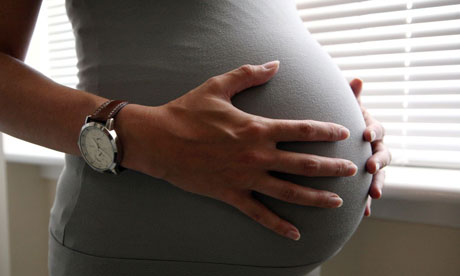
The upward swing in the number of Caesarean sections performed in the US is being paralleled by another trend: rising rates of serious complications in women giving birth.
By examining hospital discharges nationwide, a team of researchers found that rates of kidney failure, respiratory distress syndrome, shock and ventilator use associated with childbirth climbed more than 20% from 1998-99 to 2004-05, while rates for pulmonary embolism and blood transfusions rose 52% and 92%, respectively.
The study was not designed to determine the cause, but researchers said more frequent delivery by C-section - a major surgery - seemed to explain or contribute to the increases. Researchers had thought maternal age might be a key factor, but that did not seem to be the case, they found.
"It was just amazing the consistency ... from vaginal delivery, where the rates were lowest, to repeat Caesareans, where we saw an increase, to primary Caesarean delivery, where the increases were the highest," said Dr Susan Meikle, study co-author and medical officer at the Eunice Kennedy Shriver National Institute of Child Health and Human Development.
Meikle stressed that both vaginal and C-section births carry risk and that complications are still rare.
"What we're trying to do is make sure that women and families are aware of all the risks so when they make these decisions they are making informed decisions and doctors are able to give them good information," she said.
The research, published in the February issue of Obstetrics & Gynaecology, follows another study finding that elective repeat C-sections performed at 37 and 38 weeks of gestation can at least double the health risks for newborns.
Caesarean deliveries have climbed 50% over the last decade, from 21% in 1996 to an estimated 31% of all births in 2006.
Dr Xavier Pombar, director of obstetrics at Rush University Medical Centre in Chicago, said some women prefer a Caesarean because they view it as easier to schedule and less likely to cause complications such as urinary incontinence.
He said physicians are more inclined to do C-sections because they fear being sued if problems arise during a vaginal delivery.
"Everything in this country is pushing toward higher Caesarean rates," he said.
Experts said the rise in obstetric complications is significant but cautioned against overreaction.
"There are rare adverse outcomes no matter what we do," said Dr Alan Peaceman, chief of maternal foetal medicine at Northwestern Memorial Hospital in Chicago. "I don't think anyone should be worried about it. But [the new data] should be kept in mind and be part of the equation when considering the risks and benefits of doing the procedure."
Some doctors noted that the study was based on hospital coding of procedures, and any errors could skew the results. It also did not factor in the nation's rising obesity rate. Meikle said obese women are more likely to suffer complications in childbirth.

